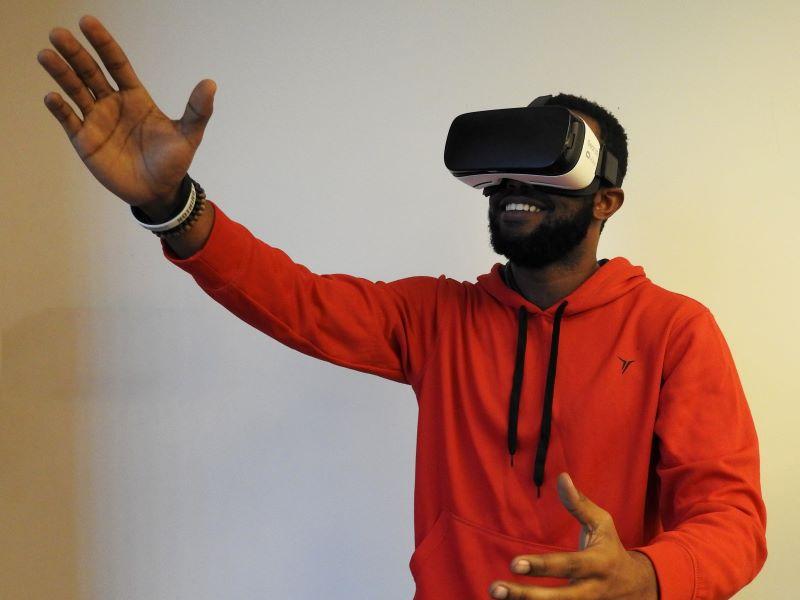In an increasingly competitive market, with fewer European Union students applying to UK higher education institutions, British universities must continue to focus on global outreach and maintaining and expanding their international networks.
Innovation is key to this. Pandemic travel restrictions – while challenging – presented universities with the opportunity to adapt their pedagogy and deliver new, student-centred international experiences online. These opportunities not only support internationalisation but help increase students’ confidence and enthusiasm for turning virtual mobility into reality.
- Introducing ‘translanguaging’ – and other ways to promote multilingualism
- Western universities need to look further afield or risk alienation
- Lessons from organising a virtual international student camp
Coventry University is preparing to run the fourth iteration of its Virtual World Tour in January 2023. More than 1,500 participants joined the first tour, with students and staff from about 40 overseas higher education partners coming together during the pandemic to create an inclusive and immersive global experience.
Participants on the tour had access to live sessions and workshops, as well as on-demand activities, recordings and resources offering virtual travel experiences to 25 countries. These included live language and culture sessions, and leadership seminars focused on transferable skills. The scheme also gave students from all over the world a means to network and build connections that could themselves lead to future global mobility opportunities.
With more than 90 per cent of participants on this first tour reporting that it improved their understanding of new cultures and increased their confidence in travel to new destinations, virtual mobility projects can clearly have a positive impact on universities’ internationalisation objectives.
Here are five considerations to bear in mind when creating a virtual mobility project:
Be inclusive
Consider your target audience: ensure your programme is inclusive both for students from your institution and those from the partners you wish to engage with. Be mindful of time differences and language barriers for online sessions, and work with your partners to ensure the learning materials that students can access are interactive and interesting. If the students participating are from multiple disciplines, consider online sessions that are diverse in their appeal.
Consider the learning environment
One of the most difficult aspects of delivering a successful virtual mobility project is managing the shared learning environment. Other institutions may operate with different learning platforms from the one you want to use, and participants may be apprehensive in learning environments they are unfamiliar with.
Provide clear enrolment instructions and ensure participants can access materials in the easiest way possible. Ideally, the learning environment should have a shared space for participants to engage in discussion, be monitored frequently, and provide updates on events linked to the project.
Facilitate networking and collaboration
A good virtual mobility scheme will provide opportunities for students to collaborate and build their networks. This could be as simple as encouraging participants to share their learning experiences or cultures with others. Consider using online forums or other networking tools that will help enhance the student experience.
Review and reward
Collecting participant feedback is vital when undertaking a virtual mobility project for the first time, because it will enable improvement to be made to future iterations. Ensure channels are provided to capture this.
Mobility projects are an effective way for students to build transitional skills – such as communication and reflection – so consider rewarding those who develop and evidence these skills with digital badges or certification. It is also worth considering if student mobility projects can be embedded directly into curriculum learning for credit.
Take the next STEP
Working closely with partners on virtual mobility projects is likely to strengthen existing relationships and create future mobility opportunities. For example, Coventry University has developed Short Turing Experience Placements (STEP) as part of the UK’s Turing Scheme for studying and working overseas. These allow students to engage with exclusive partnership institutions and join programmes that build on the cultural understanding and networks developed from the Virtual World Tour – assisting in enhancing their future employability.
As well as providing better outcomes for students, higher education institutions stand to benefit in many ways from globally minded graduates. Having alumni with the confidence to work in new countries and who are willing to engage in future international projects may create avenues for income generation as institutions identify new opportunities and markets to explore. With mentoring programmes showing considerable growth in universities, the chance to produce global graduates who can participate offers an exciting prospect to improve the experience of current students.
Alex Regan is a global mobility and development consultant at Coventry University.
Coventry University’s Virtual World Tour has been shortlisted for Technological or Digital Innovation of the Year in the Times Higher Education Awards 2022. A full list of shortlisted candidates can be found here.
If you found this interesting and want advice and insight from academics and university staff delivered direct to your inbox each week, sign up for the THE Campus newsletter.




comment